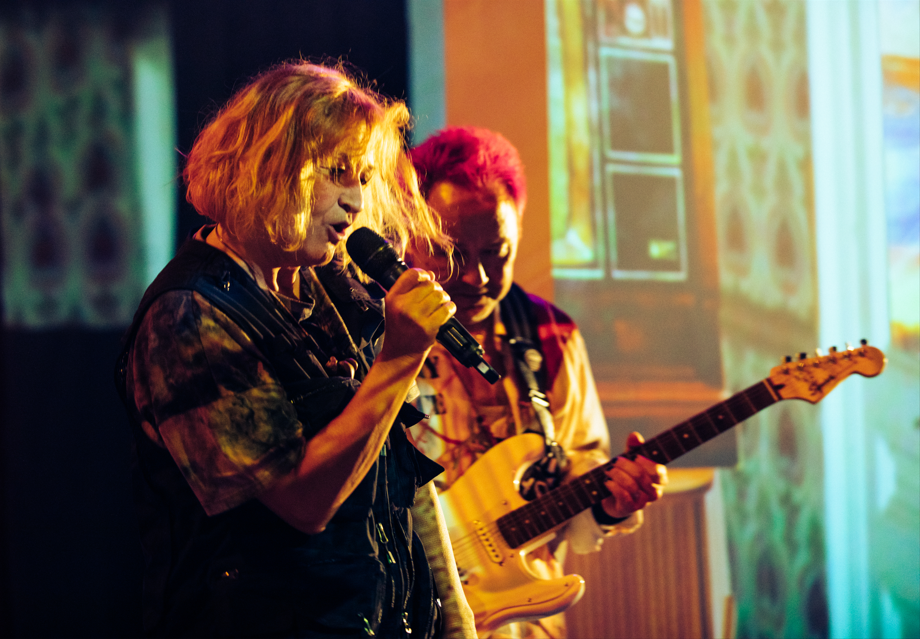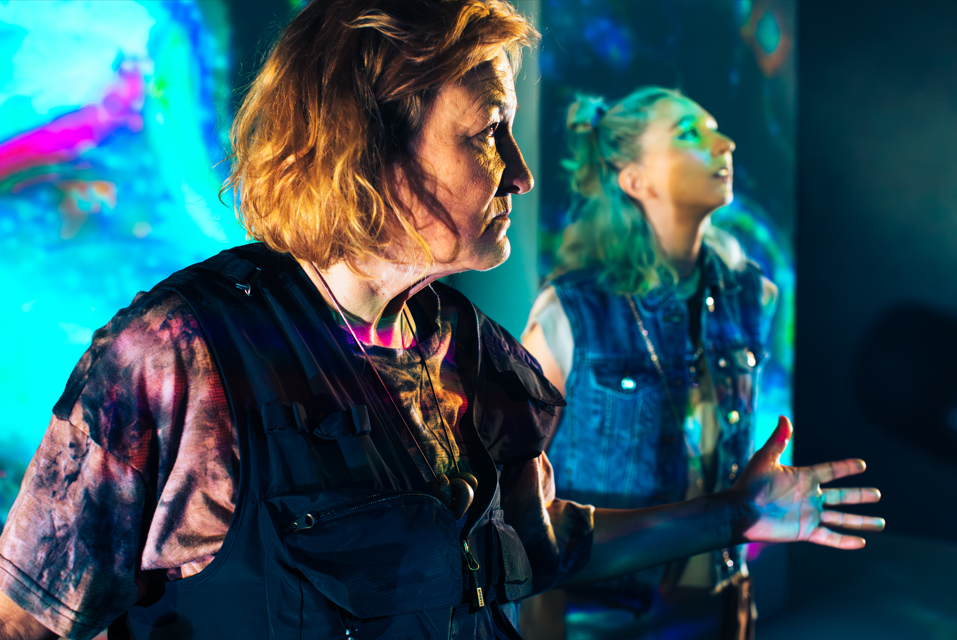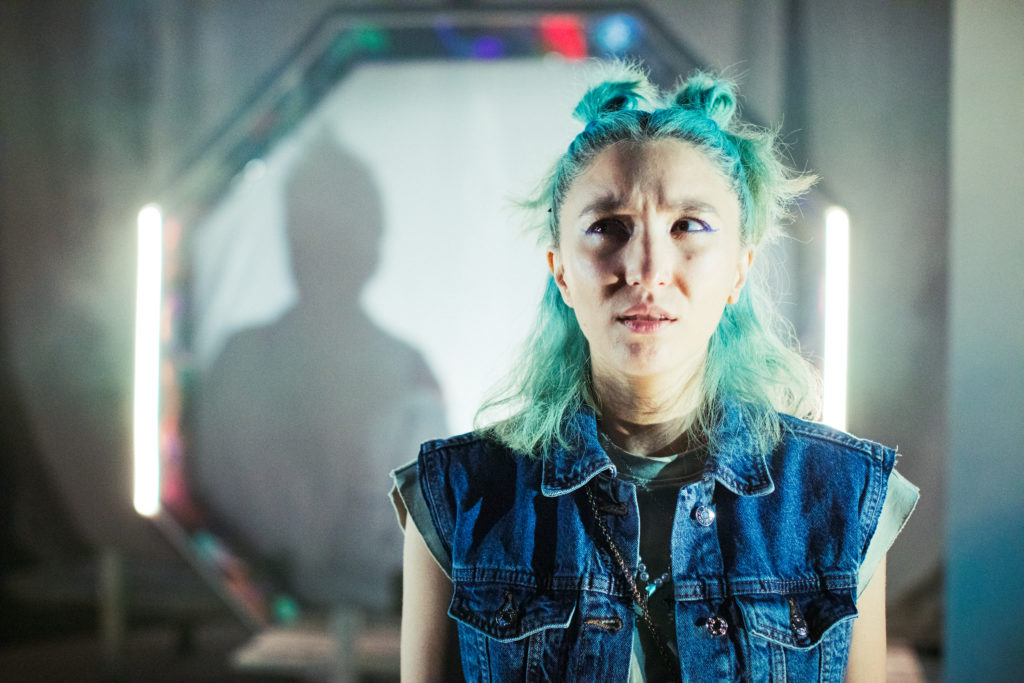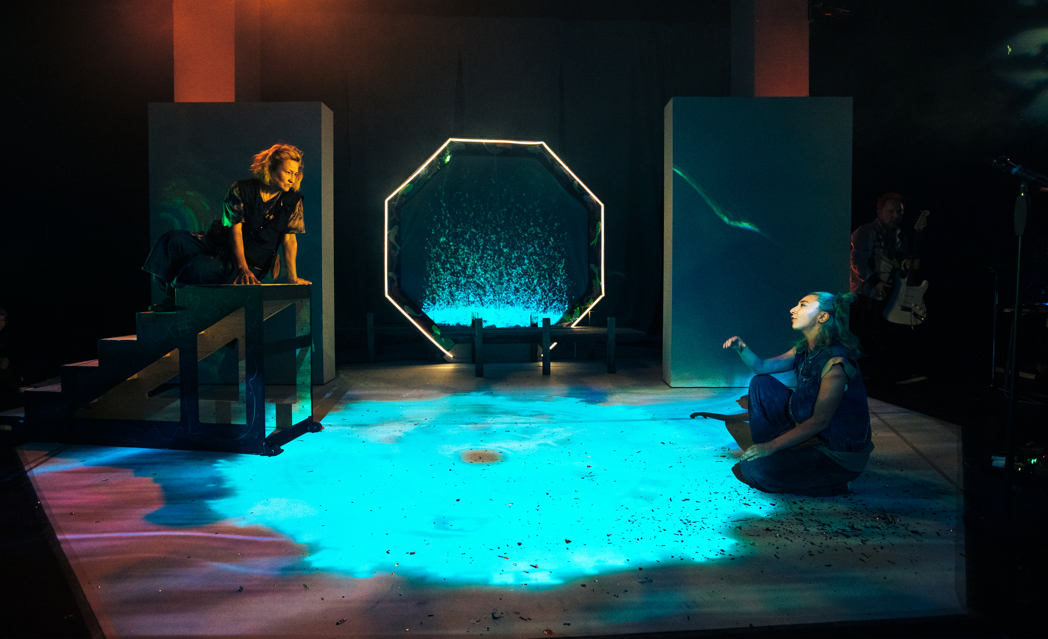The Dao Of Unrepresentative British Chinese Experience – Soho Theatre, London
Through gig-theatre and semi-autobiographical, semi-mythical storytelling, Daniel York Loh explores identity politics, racism and his path to theatre making in The Dao of Unrepresentative British Chinese Experience.

The Dao of Unrepresentative British Chinese Experience
I wrote last week about a cluster of theatrical outings centred on identity and self-discovery. The theatre gods have sent another example my way, this time The Dao of Unrepresentative British Chinese Experience by Daniel York Loh, a Kakilang production on now at Soho Theatre. There’s a lot to unpack in this production, described as a ‘psychedelic’ ‘punk, rock and rap riff’. But let’s start at the beginning. What is a dao? I look to the digital free sheet, which defines it as follows:
Dao 道 – the fundamental concept of Chinese philosophy, indicates a “way” in the sense of a road or a path. Articulated in the classical thought of the Spring and Autumn and Warring States periods of the Zhou dynasty (1046–256 BCE), dao exerted considerable influence over subsequent intellectual developments in China.
From digital free sheet.
So a dao is a path. Importantly, it’s more about forging the path by walking it than about finding a path which is manicured, nicely paved, and otherwise formalised. So a sometimes meandering, semi-autobiographical, mythologising, rap/punk piece of meta-theatre is probably not a bad embodiment of the concept.
And as it’s semi-autobiographical, I should tell you a little more about Daniel York Loh and the parts of his story he chooses to present here. The Dao of Unrepresentative British Chinese Experience draws on his experiences of growing up in a provincial city, navigating racism, difference and seeking belonging. It’s a rejection of the idea of a ‘model minority‘ as York Loh shares stories of drug use, educational underachievement and petty criminality. It’s also a form of political activism, a ‘period drama’ in which a government-supported dao to a career in theatre (complete with rehab and financial assistance) was still possible.

A Punk Look at Society, History, Philosophy and Memory
You’re probably picking up by now that there’s really a lot packed in here. I won’t even have time to get into the half of it in this post. The format, however, is intriguing and warrants a quick diversion. York Loh is on stage as his story unfolds, but is often a curiously passive bystander. Most of the storytelling is shared between Melody Chikakane Brown and Aruhan Galieva. In a borrowing from Daoist philosopher Zhuangzi, they are both older and younger versions of York Loh and the figures Cloud and Obscure. Theatrical scenes alternate with musical interludes (Composer An-Ting 安婷 was an important collaborator on the show).
I found myself thinking as I watched The Dao of Unrepresentative British Chinese Experiences about the similarities between this format and the choreopoem. There was perhaps a little less movement/dance than I would expect from a choreopoem, but otherwise several commonalities. This work takes us far from a typical Western linear theatrical structure, and uses poetry, music and song rather than plot to elicit an emotional response from the audience. Compare here with other choreopoems I’ve seen.

To Edit, or to Trust the Dao?
I also found myself pondering how I would approach such a project, and the extent to which my thoughts on this were relevant (or not). Whether you call The Dao of Unrepresentative British Chinese Experience gig-theatre, choreopoem, or something else entirely, it’s fairly long for this kind of production. On press night it ran longer than the advertised 110 minutes, with only a 5 minute interval. On the one hand, a really good dramaturgical trim might not have hurt. But on the other hand, I keep coming back to the concept of dao. Am I used to sticking to well-trodden paths, and to trim it back would be to miss the point?
And what would you cut, anyway? The personal anecdotes and philosophy are a nice yin and yang. The music reaches you on another level. There are meta-theatrical moments which are very funny. Are the radio show bits strictly necessary? Probably not, but they are a cypher for the multiplicity of ESEA (East and South East Asian) perspectives. Maybe what I need to practice is less clock-watching and more letting go and relaxing into things.
And so I think probably the best thing is for you to see it for yourself. The Dao of Unrepresentative British Chinese Experience deliberately makes itself hard to pin down, but a few things are certain. It experiments boldly with what theatre can be. It brings a perspective to the stage of what it means to be British, Chinese, mixed race, a punk, and a theatre maker. And it encourages us to ponder ourselves: are we what we think we are, or are we butterflies dreaming we are ourselves, dreaming of being butterflies? It’s not often we’re asked to engage with our own identities on that level.
Salterton Arts Review’s rating: 3.5/5
The Dao of Unrepresentative British Chinese Experience on until 13 July 2024. More info and tickets here.
Trending
If you see this after your page is loaded completely, leafletJS files are missing.

